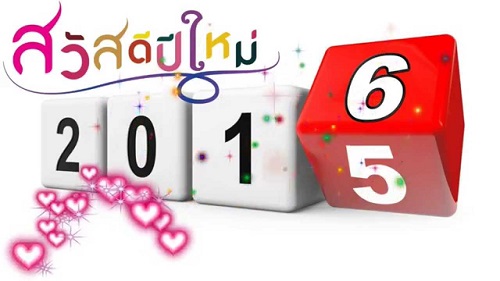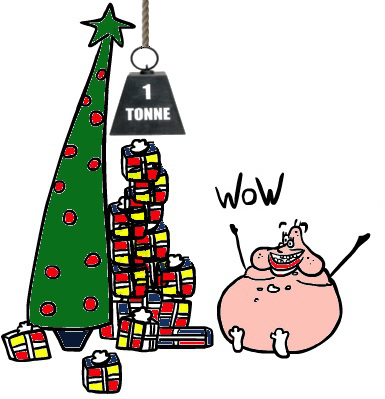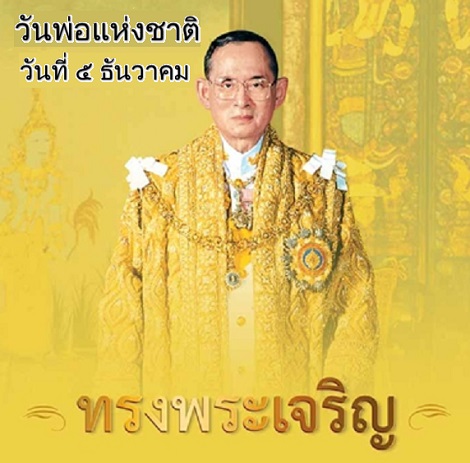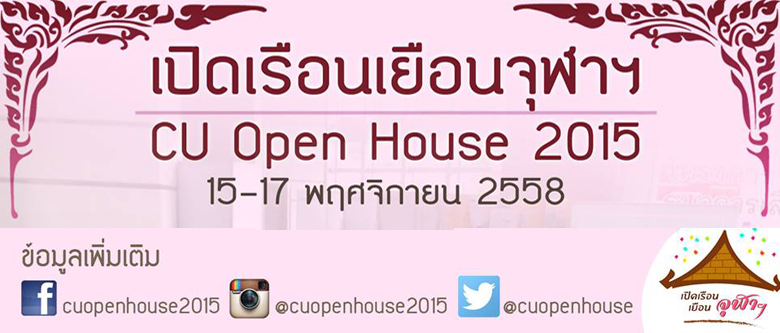
สวัสดีปีใหม่ 2559
Please follow me down the rabbit hole because at the other side you’ll be able to use (and hear and understand) this expression for wishing your Thai friends a Happy New Year or any other happy festive day.

Think of doing something physically enjoyable that makes you SWEATY like a pig (don’t tell me what it is, I don’t want to know)! You feel really good, right?
สวัสดิ์ (“s-wud”, rhymes with “hut”) is a Sanskrit word that means well-being, or “there is goodness” (“su” is good, “vasti” is “there is”). ดี (“dee”) means good (vitamin D is good for you). It’s what you say when you greet or leave someone, exactly like “shalom” in Hebrew: “peace be with you”.
So you tell someone to feel real good ‘n SWEATY whenever you meet and depart.
As for the New Year, we say it like the French: “year new” (“car red”, “girl pretty”, etc.). It takes a year to roll a PEA from Bangkok to Chiang Mai with your nose, just be careful not to SPEED. ปี (pea) is “year” in Thai.
 And like a happy pig-in-shit, you won’t have a happier experience than wallowing in a slippery mire of sweaty pea soup. Oh MY… that’s something of a new experience for you, right? (So sad…) ใหม่ (my), said with a low sad tone, means “new”.
And like a happy pig-in-shit, you won’t have a happier experience than wallowing in a slippery mire of sweaty pea soup. Oh MY… that’s something of a new experience for you, right? (So sad…) ใหม่ (my), said with a low sad tone, means “new”.
After getting all sweaty, wallowing in a messy PEA MIRE is something you should do every year on New Year’s day. It’s a great antidote for a hang-over!
 |
Important: Pronounce “p” the same way as the “p” in “speed” – the air is kept inside your mouth, not expelled as a puff.
Also, it’s important to drop your voice and feel sad (as in “uh oh…“) when you say ใหม่ (MY). Then it means “new”, not “burnt” or “wood” or “silk”, etc. In colloquial speech, it doesn’t really matter about the other tones. |
So to wish your friends a Happy New Year, say:
สวัสดีปีใหม่ นะ
(s-wud-dee pee my, na!?)
– na!? (said with a quizzical, uncertain intonation) at the end is just to be light-hearted and polite




















